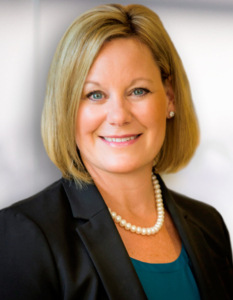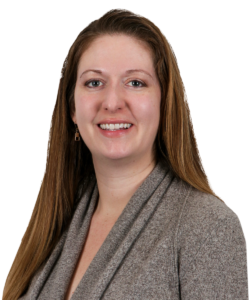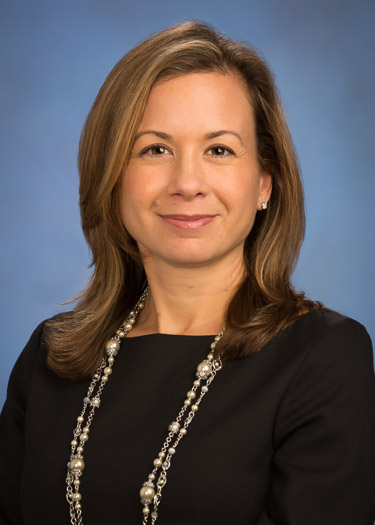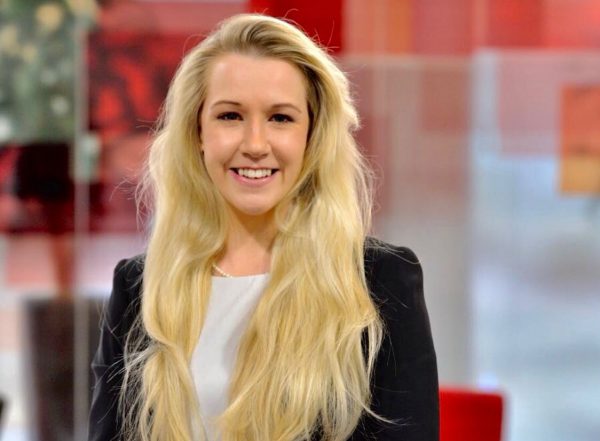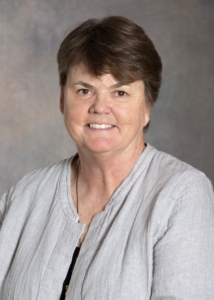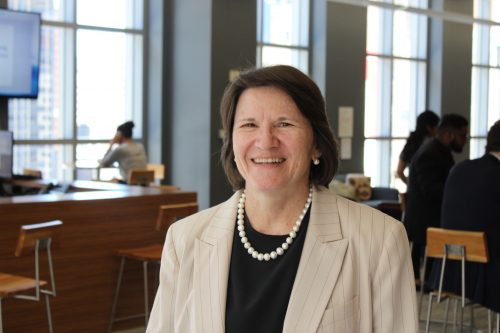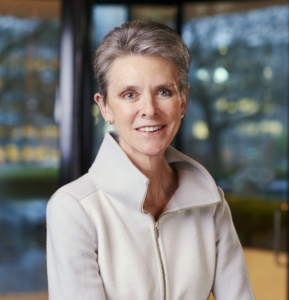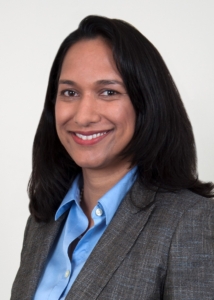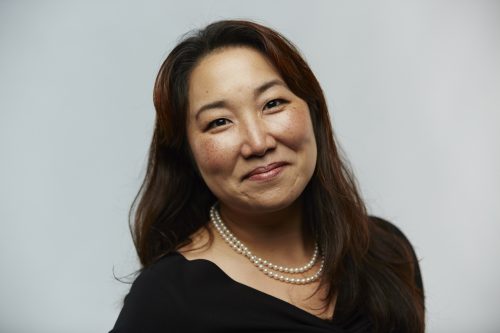Early in her career, a mentor asked WEX’ Melanie Tinto what she would do differently if she was a vice president, and she named a couple of things on her mind.
It was very eye opening when her mentor responded, “Why not operate like you’re already in the role that you want to be in? Why wait? Let people see you for the value you bring, and they’ll be thinking ‘I thought she already had that larger title.’” That is the type of advice that has helped Tinto rise within numerous companies to her current position today.
Finding Her Calling in HR
Tinto says she never thought of work as “work,” but rather something that brought her fulfilment, thus making her busy career a pleasure.
She had grown up in Maine but when she graduated, the market was not particularly robust, so she moved to Connecticut and worked for a finance company that put her in a leadership development program. She ended up with a rotation in HR and although she had planned to land in underwriting, she realized that HR was the right path for her, particularly in the recruiting and career development areas.
When the company was being acquired, she decided to make a move to Cigna that combined her loves of financing and HR. She was soon promoted to managing half the staff and went through some different departments, including product strategy, when she found herself at the tipping point where it was time to decide if she was going to stay in HR or go back to the business side. She ended up working in HR for a variety of companies of all sizes, mainly moving with bosses she admired. Over the years, she has been proud that she’s been able to play a role in developing talent and watching them blossom, with former team members who are now CHROs.
Tinto is happy now to be back with a smaller company where she appreciates the culture and tighter chemistry. And of course, she is delighted to be back to Maine.
In her new position at WEX, she’ll be focusing her attention on a variety of needs, but one of them is helping to ensure the diversity of staff. In addition she is focused on thinking ahead to how employees will want to work in the future and how the company can help retain them by offering a variety of work paths, such as short- and long-term assignments to keep them interested.
Also, now that she is in a different chapter of her career, she’s looking forward to expanding her work on advisory boards to deepen her roots by becoming more engaged in the community beyond her day-to-day work.
Benefitting from Mentors and Passing It On
Another lesson that stuck with Tinto from a mentor came from the military, “Completed Staff Work.” What that means is never put a problem in the lap of someone else; instead at least offer options and recommendations. “Find that extra step that differentiates you and helps your leader do his or her job better,” she advises. So for example, if you knew your boss was going to forward your email directly to the CEO, would you check it one more time for format or spelling? Then assume that might happen and do it.
She says that she feels so grateful for her career path that she is eager to bring others along. To that end, she says it’s important to remember to give credit to team members, which can help strengthen relationships.
Building those relationships has always been important to her. At a former employer she helped lead the women’s employee resource group and saw how impactful the outlet was as a way to remember not to just put your head down and work.
“Many of the women I met there are still my board of advisors,” she says, adding that she has known many of them since the ‘90s, which offers a vast network she can always ask for help or advice.
“Sometimes you need someone to hold a mirror up to you, and you have to be open to that feedback, which makes you better even when you don’t want it,” she says.
A Full Life With Family
Balance is important to Tinto, and she says she wishes she’d learned earlier in her career to carve out time for herself. “You have to take that hour, or leave work to take a vacation because often taking a break is a better way to be more effective.”
Now she enjoys spending time with her husband of 25 years and 13-year-old son and 10-year-old daughter. “I’m lucky because I’ve always felt very supported in terms of my career – even with all the craziness, we are a team that supports one another.”
Together they love to participate in a wide variety of activities, from camping to concerts to trips. One of their goals is to see every state in the country and they only have eight left. “I wouldn’t trade the memories we’ve made for anything,” she says.
The family is also busy with kids’ sports and traveling teams, particularly horses and lacrosse. And now that she is back in Maine, she is delighted to be able to spend Sunday dinners with the extended family.

